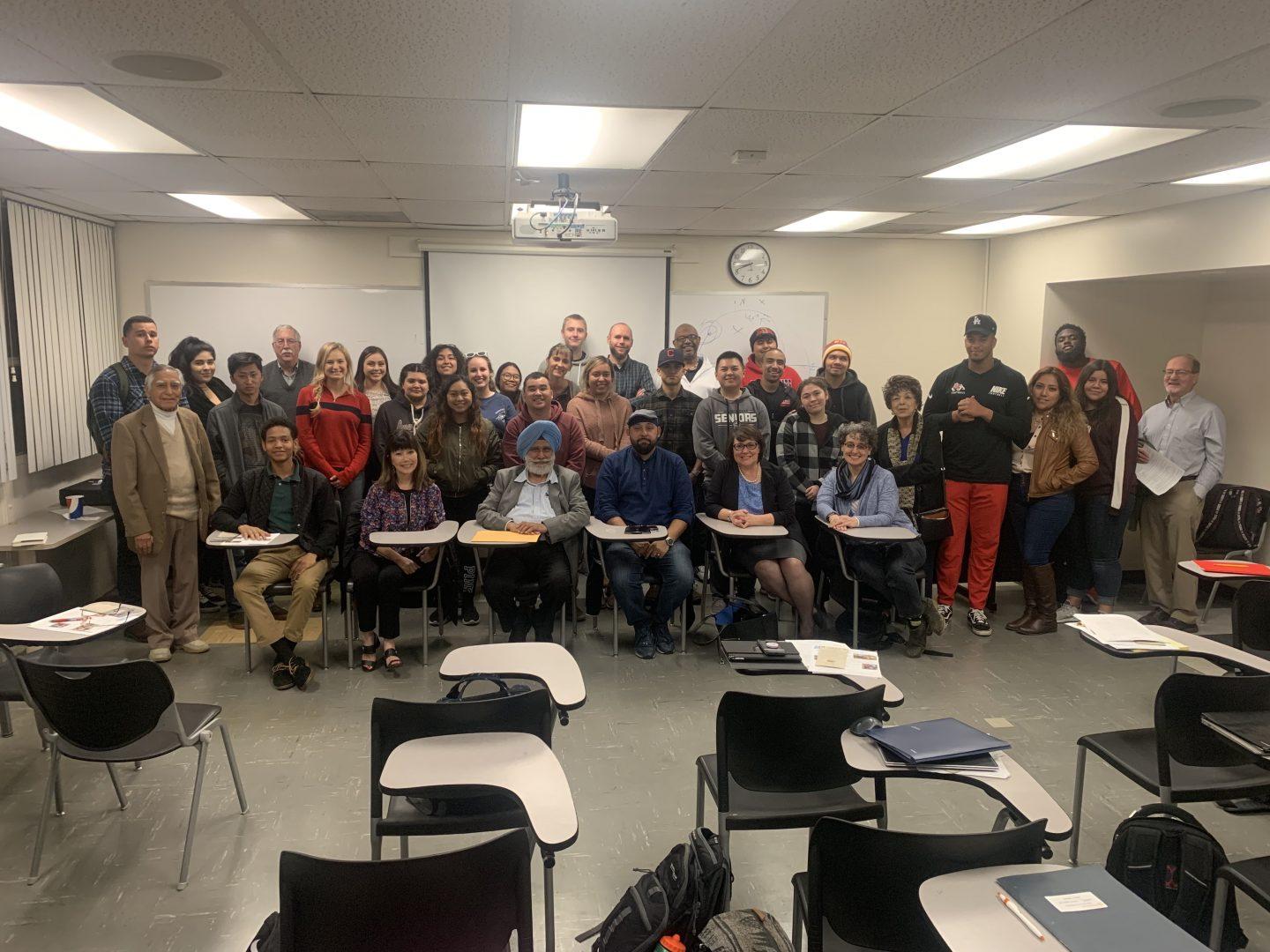Leaders from six different faiths gathered at Fresno State for an interfaith peace-building conversation on Wednesday. Their main goal was to find ways to promote peace and prevent violence and hate.
The panel included leaders from Mormon, Islamic, Jewish, Buddhist, Sikh and Christian faiths, all of whom were brought together by professor Sudarshan Kapoor as part of his Peace Building and Conflict Transformation class.
“The way we are living at present in society, it’s very important to bring understanding and respect for various faith traditions so that we don’t have the kind of violence that we have witnessed in synagogues and houses of worship,” said Kapoor. “I want to see my students to be more sensitive, more knowledgeable, more aware of the importance in respecting each other’s faith and tradition.”
The discussion began with Rabbi Laura Novak Winer introducing three areas of thought in Judaism for peace building: peace (Shalom), repairing the world (Tikkun Olam), and Jewish Responsibility. She explained that Jewish Responsibility is every individual’s responsibility to do good in the world.
“We are often called people of the book because of how closely we follow the Torah,” said Novak Winer.
Buddhism was introduced by faith leader Paula Kanagawa, who gave a brief history of the Buddha, the Dharma, and different sects of Buddhism.
Kanagawa spoke about the need for harmonious relationship among faiths, stating that the Buddhist Churches of America strongly oppose any actions that lead to discrimination against certain groups based on their ethnicity or faith.
“The national Japanese American Citizens League was the first civil rights group to defend the rights of Muslim Americans after 9/11 to prevent another Executive Order 9066,” said Kanagawa, comparing the treatment of Muslim Americans to the internment of Japanese Americans in WWII.
Faith leader Amrik Singh Virk introduced the Sikh values to peace building, preaching that only inner peace can create outer peace. The Sikh principles suggest that Hamanism is the only religion where there is no conflict, according to Singh Virk.
“If you want peace all around you and in the world, shun your ego,” said Singh Virk. “Leave your ego behind, which gives rise to Kaam (desire), Kardoh (anger), Lobh (greed), and Moh (attachment). These are the basic vices that harm the peace, create the war and conflict and ultimately harms humanity.”
Pastor B.T. Lewis II shared the Christian morals to promote peace building, commenting on how sin and evil have done much damage in the world and in the community. He compared the difference in quality of neighborhoods in south Fresno to north, and blamed that on the prejudices within the Fresno community.
“There are inherent biases and prejudices that we must admit we have before we can promote peace,” said Lewis. “When we become so implicitly biased, when bigotry becomes so much of our character that we don’t notice, we become segregated. We need to have a conversation about why we don’t like each other before we have peace.”
Director of the Fresno Islamic Cultural Center Reza Nekumanesh was the last of the faith leaders to speak. Citing the Qur’an, Nekumanesh said that for one to have peace, justice must be prevalent, and that through love there is a way to build peace.
“God made every one of us different on purpose so that we can know each other,” said Nekumanesh. “We must come together knowing that we have work to do.”
Kapoor holds the faith panel every semester for his class and hopes to expand to a bigger venue in the future so that the larger community can be involved.
“The more we talk about the good things that religion has to offer, the better it is for all of us,” said Kapoor. He added: “Interfaith peace building is the antidote to extremism and facism.”




